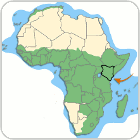
Lying within the tropics and exposed to a dry climate, Kenya suffers from low agricultural productivity. Only 20% of Kenya’s total land mass is arable. However, agriculture is the mainstay of the country's economy, contributing 30% of the GDP, 50% of export earnings and 70% of employment. Main Kenyan crops are coffee and tea (mainly for export), maize, ginger, rice wheat, sweet potatoes, sugar cane and bananas.
Agricultural research was initiated in Kenya during the late 19th Century by the colonial powers. Presently, plant breeding and related activities account for a major proportion of the budget allocation in research. These activities are carried out by about ten institutions, but largely dominated by the only public research institution (KARI). KARI’s research efforts are supplemented by universities, tertiary institutions, NGOs, CBOs and private companies.
Maize is the most important crop in the breeding programmes because it is the main staple food crop in the country. Grain legumes, vegetables and fruits are also well-represented in breeding programmes. Up to the present the plant breeding budget was mainly allocated to line development and evaluation but the percentage of resource allocation for germplasm enhancement has been increasing over the years.
As in much of sub-Saharan Africa, there has been a decline in both human and financial resources for agricultural research including plant breeding and biotechnology. Therefore the number of available breeders per crop became an important constraint. Some of the private seed companies complain also about the limited access to international genetic resources.
Research and education institutes with activities in plant breeding
Public Institutes
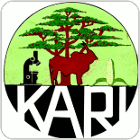 |
KARI is a semi-autonomous public organization and has a quasi-monopoly on agricultural research activities in Kenya mobilizing about 75% of all the financial and human resources for research in the country. KARI has been involved in conventional plant breeding since 1927 and in plant biotechnology since 1981. KARI has 21 main research centres, and 12 sub-centres strategically spread throughout the country to cater to different agro-ecological zones and socioeconomic systems. KARI deals with 11 types of crops/crop groups, namely maize, wheat, sorghum and millet, cotton, roots and tubers, forages, small grains (like barley & oats), grain legumes, vegetables and fruits.
|
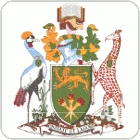 |
Established in 1970, UON is a public sector learning institution and the largest University in Kenya. This college provides training in agricultural sciences leading to BSc, MSc and PhD degrees. Faculty members at the campus also conduct research in the breeding of various types of crops including cereals, grain legumes, oil seed crops and vegetables among others. They are also involved in plant biotechnology since 1979.
|
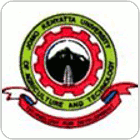 |
JKUAT was established in 1981, with the financial and technical assistance of the Japanese International Cooperation Agency (JICA). JKUAT has been engaged in plant breeding and plant biotechnology since 1992. Its activities focus in the development of disease resistant tomato and in the production of clean planting material of the banana cultivars preferred by farmers, through funding from JICA.
|
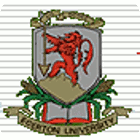 |
EAC has a mandate of providing training in various disciplines in the area of Agriculture, leading to BSc, MSc and PhD degrees and to conduct Agricultural research in both the crop and Animal sciences. Egerton University has been involved in plant breeding since 1995 and in plant biotechnology since 1997. Its activities focus mainly on maize, wheat and grain legumes.
|
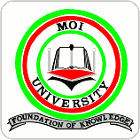 |
The university established a Faculty of Agriculture in the year 1991 and a department of Horticulture and Seed Technology in the year 1993. It is within this programme that plant breeding activities at the university are implemented. The major breeding programme in terms of budget allocation concerns grain legumes. This University carries out biotechnology research in the areas of molecular characterization, tissue culture, marker assisted selection and wide crosses.
|
 |
Established in 1991, Maseno University has been involved in plant breeding since 1995. However it is not involved in any biotechnology research activity. Major breeding programmes in terms of budget allocation cover indigenous vegetables, finger millet, beans and cassava. The resources are utilized mainly for line evaluation.
|
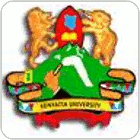 |
The Department of Biochemistry and Biotechnology of the School of Pure and Applied Sciences trains BSc, MSc and PhD students and conducts research in biotechnology. Kenyatta University has not been involved in plant breeding. However, it has been involved in biotechnology research since 2005 with a main focus on maize, sorghum and root and tuber crops.
|
 |
The faculty of science of Masinde University was founded in 2002 as one of the pioneer faculties of the university. It offers BSc, MSc and PhD degrees in Sugar technology and biotechnology among other programmes. MMUST has been engaged in plant breeding and biotechnology since its foundation. It works mainly with maize, sorghum, sunflower and cotton.
|
Private Institutes
 |
Established in 1956, the private company KSC is currently the largest seed company in Kenya and in the East African region. It is currently dealing with various crops including maize, wheat, sorghum, oil seed crops (sunflower), grain legumes (beans), vegetables and forages. The KSC is involved in various activities including variety development, seed production and inspection, processing and marketing of the above mentioned crops. The company has to date never utilized any biotechnological tools in its crop improvement programme.
|
 |
WSC is a private seed company that operates in both Kenya and Uganda. In Kenya, this company was officially registered to operate in the country in 1995. Its activities include variety development, seed production and inspection, and marketing. In Kenya, the company mainly deals with maize, beans and sorghum, and produces seed appropriate for four main crop growing regions in Kenya including the High altitude, Medium altitude, Low-mid altitude and the Dry Lowland zones. The WSC has been involved in conventional plant breeding since 1995. It however did not use any biotechnological tools up to today.
|
 |
PSC is a private South African seed company operating in Kenya. The company breeds all its varieties in South Africa, which is where all its main crop breeders are based. The company was established in Kenya in the year 2000. Its breeding activities in Kenya are mainly restricted to evaluation of the South African-bred material, for adaptation in selected regions of Kenya. The variety evaluation trials in Kenya provide data that are used to determine the areas that are suitable for the different introduced materials.
|
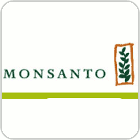 |
Monsanto is a private international seed company. MSCK was officially established in Kenya in 1998, when it bought out Cargill Seed Company and re-hired many of its personnel. Cargill Seed Company had been established in Kenya in 1987. Monsanto Seed Company mainly improves maize from a base in southern Africa (Zimbabwe and Malawi). The finished maize products are then brought to Kenya for multi-locational evaluations, in order to identify cultivars that are appropriate for specific agro-ecozones, and to generate performance data that are needed for official release of this material in Kenya. Among the private seed companies in Kenya, Monsanto is the only one engaged in crop biotechnology.
|
 |
Pioneer Overseas Corporation is a private seed company, whose headquarters is in Zimbabwe. All the main plant breeders in the company are based in Zimbabwe where all the basic breeding is conducted. Pioneer was officially established and registered in Kenya in 2000. In Kenya, the company maintains only one staff member, whose main task is to evaluate selected maize varieties / hybrids, in various parts of Kenya for adaptation trials, and also to generate variety performance data which are essential for official release in the country.
|
______________________________________
Information by Elijah M. Ateka, Josephine M. Songa (2008) - Information based on the Kenya's full report from the PBBC survey. Last revised 03-03-2010, GIPB.















